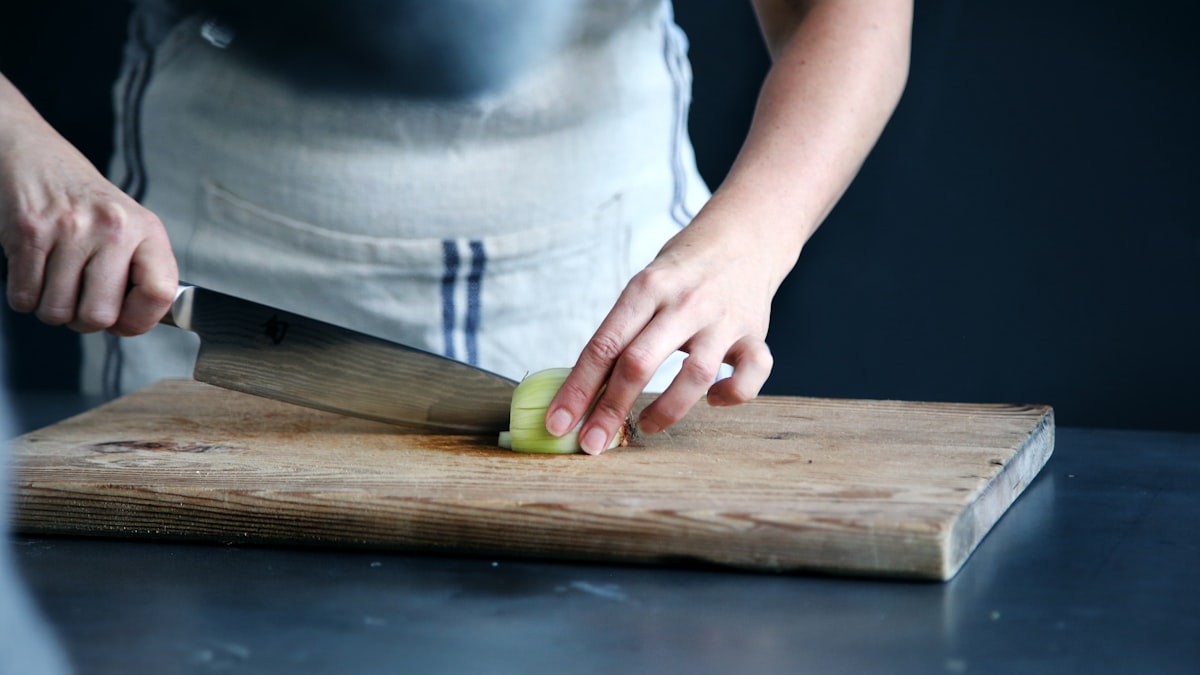Why cooking is one of the most valuable skills you can learn

Throughout human history, we've developed quite an extensive collection of ways to express ourselves. From music to literature, architecture to painting, these all satisfy humanity's never-ending quest to find purpose in this world. But there is one domain that arguably stands apart, one that caters to a basic need that we all have: cooking food.
Many of us are lucky enough to have sufficient income and live in countries where the issue of whether there will be food on the table is no longer at the back of our minds, and this post is written from that point of view. This is in part due to our ever-growing industrialised world in which manufacturing large quantities of food is now cheaper, which means that reaching your minimum daily calorie intake is not going to set you back much money.
However, this increase in availability, coupled with the rise of fast food, prepared meals and delivery services, means that there are more and more steps separating us from our food than there ever have been. A consequence of this is that we are much more detached from where our food comes from and how to make it, so it is possible to live a long and healthy life without ever knowing how to cook.
Cooking is therefore the best way to redefine your relationship with what you eat and best of all, it requires all your senses to master properly, which is one of the main reasons I find it so exciting. Who can deny how nice it feels when you smell a stew that's been simmering for hours, feel how soft dough becomes while you are kneading it, hear the sound of a steak searing in a pan, see how egg whites change and stiffen into peaks when you beat them and, most importantly, how all of these things taste? Once you have decided to learn how to cook, it has many more advantages than just satisfying your eating desires and stimulating all of your senses. This starts with the way in which you learn how to cook.
When learning a skill, you must combine theory with deliberate practice in order to progress, and this is where the fact that you must eat food every day kicks in because in a sense you are "forced" to practise almost every day. While this argument is less relevant if you live in a city where you can have hot food delivered to your door without lifting a finger, I still think that if you are trying to get better at cooking, chances are that the proportion of home-cooked meals you eat will increase. There is however a factor of risk when cooking, which is that the ingredients you use can only really be used once. If you happen to burn, overcook, overseason or drop on the floor some of your produce, then you will lose time and money over it. For this reason, it is important to note that it can be slightly daunting when you are starting this learning process or if you are experienced and cooking with something that you don't know very well.
Creating something yourself is also a great way to generate excitement, so if you have ever been a picky eater, or would like to try new flavours but have never dared before, cook it yourself and maybe it will change your view on certain foods. Playing with flavours from abroad is also a way to travel without ever leaving your home and can even be a way to remind you of your home country if you happen not to live there anymore.
Another way in which cooking has huge benefits in the 21st century is by gaining control over what you are eating. Ready-made meals are present wherever you look in Western supermarkets and most of the time we have no idea what goes in them. Procuring yourself with the raw ingredients with which to make dishes gives you total control over what you consume, even compared to eating out at restaurants that famously, especially where I live in France, add butter to most of what goes on your plate. Granted that makes the dishes very delicious, but if that's something you are concerned with then cooking at home can be a solution. Add in the fact that, generally speaking, cooking is cheaper than paying someone else to do it for you, and learning how to cook is starting to look like a pretty good idea.

But in my opinion, the most enticing reason to learn this skill is the connections it creates to your family, friends and even other cultures. Cooking a meal from scratch for your loved ones is one of the most gratifying feelings that you can have, as it will fulfil them, show them that you care, but can also perpetuate family traditions or create new ones, connect you to older generations or even get people around you excited about new foods. As with anything in life, they are made better by sharing with others, but food seems to be able to do that better than anything else.
You can take this knowledge even further than the simple act of making dishes and learn more about the history of other cultures, or even yours, by using culinary traditions and the stories behind them as the guiding light of your understanding of the subject. As someone who is in the process of learning more about Italian history and cuisine, some of my favourite books, such as Delizia by John Dickie and Chewing The Fat by Karima Moyer-Nocchi, have looked at history through the lens of food.
Add on top of all this the fact that you can customise homemade meals at will, that cooking can be therapeutic, unleash your creativity, make you eat healthier food and you've got yourself a fantastic skill that is well worth your time to pick up. Thankfully, it has never been easier to learn how to cook than today, with free sources like YouTube, online courses, cookbooks available at a moment's notice and much more to be able to get your teeth stuck into the wonderful art of making food.
